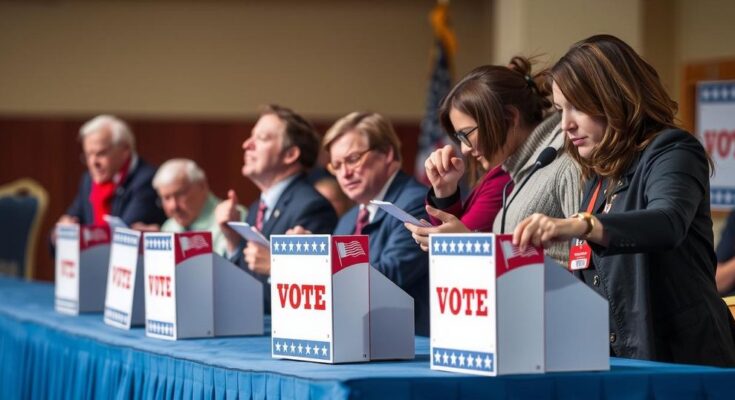Colorado’s 10 electors cast their official votes for Kamala Harris, representing the majority vote in the state. Despite winning Colorado with 54%, Harris overall lost the election to Donald Trump. Governor Jared Polis emphasized the importance of the electors’ responsibilities, referencing the National Popular Vote Interstate Compact, which seeks to reform the electoral process.
In a notable event during the presidential election period, Colorado’s 10 electors formally cast their votes for Kamala Harris and her vice presidential running mate, Tim Walz. These electors, chosen by the Colorado Democratic Party, represented members of the state’s congressional delegation. In the election, Harris and Walz received 54% of the votes in Colorado, although the national outcome favored Donald Trump with 312 electoral votes versus Harris’s 226. Governor Jared Polis and Secretary of State Jena Griswold oversaw this voting in which each elector pledged to vote in accordance with the state’s popular vote, a procedure echoed historically, given that one elector deviated from designated voting responsibilities in 2016. Governor Polis expressed the significance of each elector’s duty, emphasizing that their decisions reflect the will of Colorado’s electorate.
Polis highlighted the National Popular Vote Interstate Compact in his address, which Colorado adopted in 2019. This initiative aims to abolish the electoral college system, assigning victory to the candidate who wins the national popular vote. Currently, 17 states and Washington, D.C. have agreed to this compact, which requires an additional 61 electoral votes to come into effect. The governor remarked on the complexity of alternative proposals, such as a constitutional amendment to eliminate the electoral college altogether, which demands considerable bipartisan support.
Additionally, each elector vowed to uphold the will of the voters, signing documents overseen by Secretary Griswold. Polis also took this opportunity to issue a proclamation regarding the voters’ approval of ten ballot measures from the November election, noting the community’s civic engagement during this pivotal time.
The presidential election process in the United States includes casting electoral votes, which are determined by the outcomes of the popular votes in each state. Governors and state officials oversee this intricate process to ensure adherence to state laws, which often bind electors to vote for the candidates who have won the popular vote within their states. Colorado’s participation in the National Popular Vote Interstate Compact represents a shift in the conversation about the electoral college, emphasizing the desire for a system that reflects the direct votes of citizens.
In conclusion, Colorado’s electors’ official votes for Kamala Harris underscore the ongoing dynamics of the presidential election system, particularly in states advocating for changes such as the National Popular Vote Interstate Compact. Polis’s remarks regarding the significance of electoral duty resonate with ongoing efforts to reform the electoral process, highlighting both collective civic responsibility and the challenges associated with amending the Constitution. As the political landscape continues to evolve, the implications of how electors are bound to represent their constituencies will remain a focal point in future elections.
Original Source: www.coloradopolitics.com




